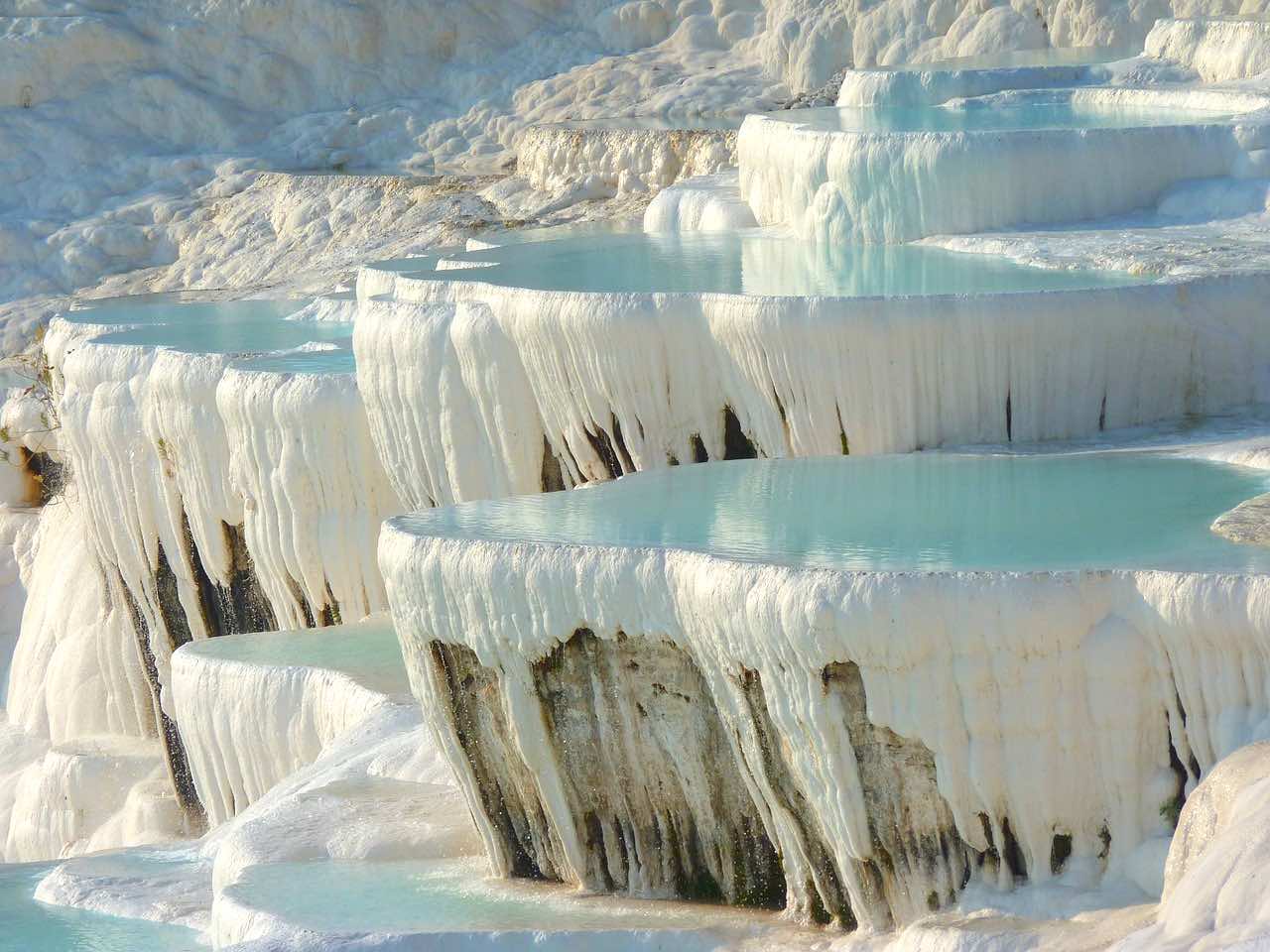Travelers are drawn to Ephesus and Pamukkale tours, two spectacular locations in the centre of Turkey, by their alluring combination of history, culture, and natural beauty. Ancient ruins at Ephesus whisper tales of Roman majesty, while the bizarre terraces of milky-white travertine at Pamukkale are a geological wonder. These Turkish treasures guarantee a memorable journey through time and space, whether you are an archaeological enthusiast or a nature lover.
When you are on Ephesus and Pamukkale tour from Istanbul, you can enjoy spending time on the following.
1. Historical marvels of Ephesus
Ephesus in Kusadasi, Turkey, is a mesmerizing portal to the ancient biblical heritage. It signals history enthusiasts and those with a deep spiritual yearning to explore its rich historical and religious essence.
This remarkable city, celebrated for its profound cultural and religious significance, encompasses treasures like the legendary ancient Ephesus.
Here, visitors can immerse themselves in the awe-inspiring archaeological wonders of Ephesus, which house iconic landmarks like the Library of Celsus and the Fountain of Trajan, making it an indispensable pilgrimage for seekers of history and faith.
2. Pamukkale’s natural wonders
Pamukkale, known as Hierapolis, ranks among the world’s most intriguing destinations. It is celebrated not only for its mesmerizing and unique geological formations, but also for its historical treasures.
Hierapolis boasts a vast Necropolis with 1,200 graves:
- The Roman Bath
- Domitian Gate
- Main Street
- Byzantian Gate.
The iconic Calcium Terraces, formed by warm spring water rich in calcium bicarbonate, are a natural wonder. Visitors can even swim in the ancient spring pool for an additional fee, but they should bring their swimwear.
3. Cultural experiences
While touring Ephesus and Pamukkale, you can also have the opportunity to taste local cuisine and have a dining experience. You will get exposed to the local culture of this place.
It is believed that Mother Mary spent her last days in Ephesus, and after her death, she was also buried here. During the nineteenth century, a nun had dreamt about a mountain near Selcuk.
Surprisingly, in the early 19th century, a French priest named Abbe Gouyet stumbled upon it, leading to excavations and its transformation into a revered pilgrimage site. This unexpected Christian symbol has attracted visits from religious leaders like popes and cardinals in modern-day Turkey, a predominantly Islamic nation.
You can learn more about Ephesus and Pamukkale while mingling with people in nearby Turkish villages
4. Travel back in time.
Stepping into Ephesus is similar to a journey through time. This once prosperous Roman city witnessed a gradual decline starting in the 3rd century AD, attributed to seismic events and external pressures. Over time, it gradually receded into the annals of history, its former glory concealed by the sands of time.
In 1860, British archaeologists renewed its memory, embarking on a century-long excavation journey. Remarkably, only about 20% of Ephesus has been unearthed, with ongoing excavations promising future revelations. Returning in 5-10 years could unveil a transformed and even more captivating Ephesus.
A magnificent blend of history, environment, and culture is promised when traveling to Ephesus and Pamukkale. These Turkish treasures signal you to explore them and provide unforgettable experiences that will stay in your memory for years.







